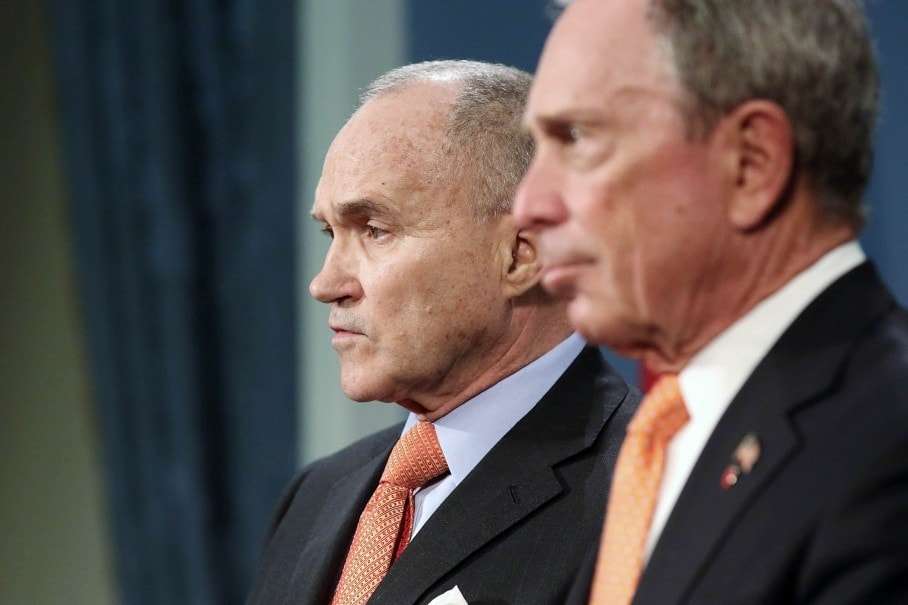The Volokh Conspiracy
Mostly law professors | Sometimes contrarian | Often libertarian | Always independent
William F. Buckley Program at Yale hosts its second annual 'Disinvitation Dinner'

Five years ago, a group of undergraduates founded the William F. Buckley, Jr. Program at Yale to promote intellectual diversity at Yale University. They have their work cut out for them. The Yale Daily News recently confirmed that the faculty is overwhelmingly, monolithically liberal; in this election cycle, only three professors in the entire university donated to a Republican candidate, it reported. (From the law school, the number is zero.) Most students at Yale will graduate without ever laying eyes on a Republican professor. So the Buckley program seeks to bring underrepresented, right-of-center voices to campus.
One problem with the radical ideological imbalance on college campuses is that some students get so comfortable in this progressive ideological bubble that they find the mere presence of a conservative speaker on campus to be some sort of affront. So, on the rare occasion that a right-of-center speaker is invited to campus, vociferous student protests follow; universities often capitulate despite their professed commitment to free speech; and the speaker is disinvited or otherwise pressured to withdraw. These "disinvitations" have become so common that the Foundation for Individual Rights in Education (FIRE) now maintains a database to track them. In recent years, such luminaries as former Secretary of State Condoleezza Rice, International Monetary Fund Managing Director Christine Lagarde, activist Ayaan Hirsi Ali and many others all received this shabby treatment for not toeing the radical progressive line.
So, in a brilliant act of jujitsu, the William F. Buckley, Jr. Program at Yale now hosts an annual, convivial "Disinvitation Dinner" in New York, with a keynote speech by someone who has received this sort of treatment. There are, alas, many such speakers to choose from, and this year, the Buckley program chose former New York Police commissioner Ray Kelly. The dinner was last week, and Kelly gave a masterful speech.
He began by describing his treatment at Brown University, where he had been invited to speak a few years ago:
In the days leading up to the event, I was told by my staff that my scheduled appearance was providing some controversy to Brown's campus. That didn't particularly concern me. In the kind of work that I was doing, I regularly had to answer to critics, and appropriately so. Because policing invites controversy. It lives at the nexus between security and liberty, so it should be a topic for passionate expression. The event was being held only a few weeks after a federal judge had ruled that the NYPD practice [amounted to] (a term never used before) "Indirect Racial Profiling," in its approach to field interrogations, or as it's called, "Stop, Question, and Frisk." There was a great deal of misinformation that was out there about this subject, and I saw this as an opportunity to clear up some of the misconceptions, and I expected that the exchange with the students would be civil, intelligent, thought provoking, and constructive, particularly since it was being held at an institution of higher learning. I was wrong. The students wanted no exchange. In fact, they wanted to stop me from speaking at all. Even worse, the Brown University administration became largely complicit in these efforts.
Kelly's speech was disrupted by protesters and ultimately cancelled by the Brown administration, but at the Disinvitation Dinner, Kelly gave the speech that he would have given at Brown, a very thoughtful discussion of proactive policing. Jumping to the most controversial point, did his proactive policing strategies in fact disproportionately impact minorities, as the Brown protesters insisted? Yes, Kelly says, indeed they did:
Proactive policing … looks to create policies and programs and approaches that prevent crime from happening in the first place. And it has been enormously successful. In 1990, in [New York City], there were 2,245 murders. In 2013, the year I finished my 12-year tenure as Commissioner at the NYPD, and the last year of Mayor Bloomberg's administration, we had 333. … What that meant in stark terms is this - there were more than 9,200 fewer homicides, fewer murders, in the 12 years of the Michael Bloomberg administration than there were in the 12 years before that. Now if history is any guide, the lives saved were mainly the lives of people of color. Predominately young black and Hispanic men.
Perhaps these facts would have given the Brown protesters some pause; one hopes they would agree, to borrow a phrase, that these thousands of black lives matter. But we will never know. Alas, neither the protesters nor the rest of the Brown community ever had an opportunity to consider this point, because they prevented Kelly from speaking at all.
Kudos to the William F. Buckley. Jr. Program at Yale for a terrific event, and congratulations to Kelly on a superb speech. Watch the whole thing here:
For more information about the lack of intellectual diversity on campus, go to Heterodox Academy. (Also, see my short essay, here.) For more information about the increasing threats to free speech on campus, go to the Foundation for Individual Rights in Education (FIRE). And for more information about the host of this excellent Disinvitation Dinner, check out the William F. Buckley, Jr. Program at Yale.


Show Comments (0)